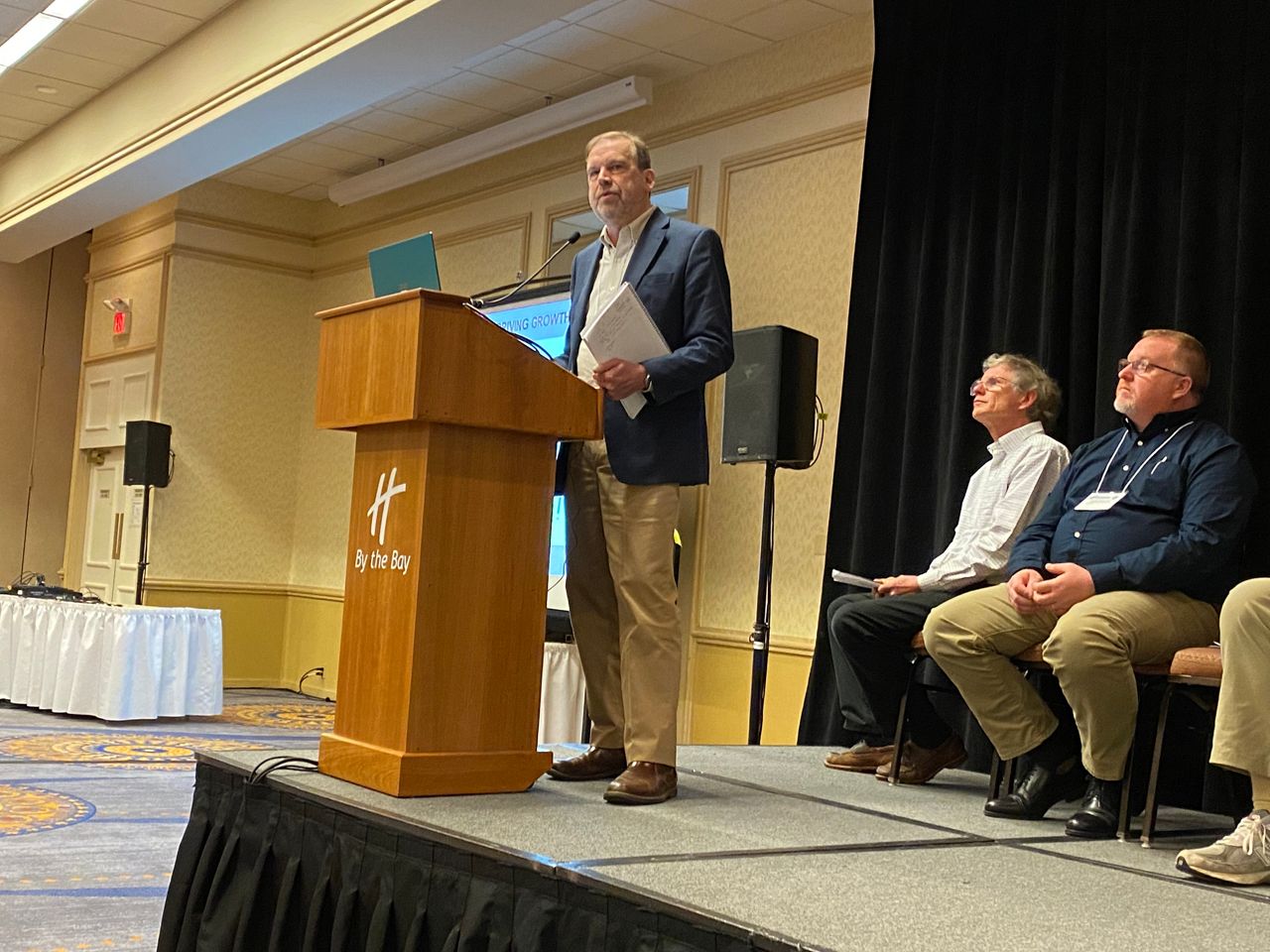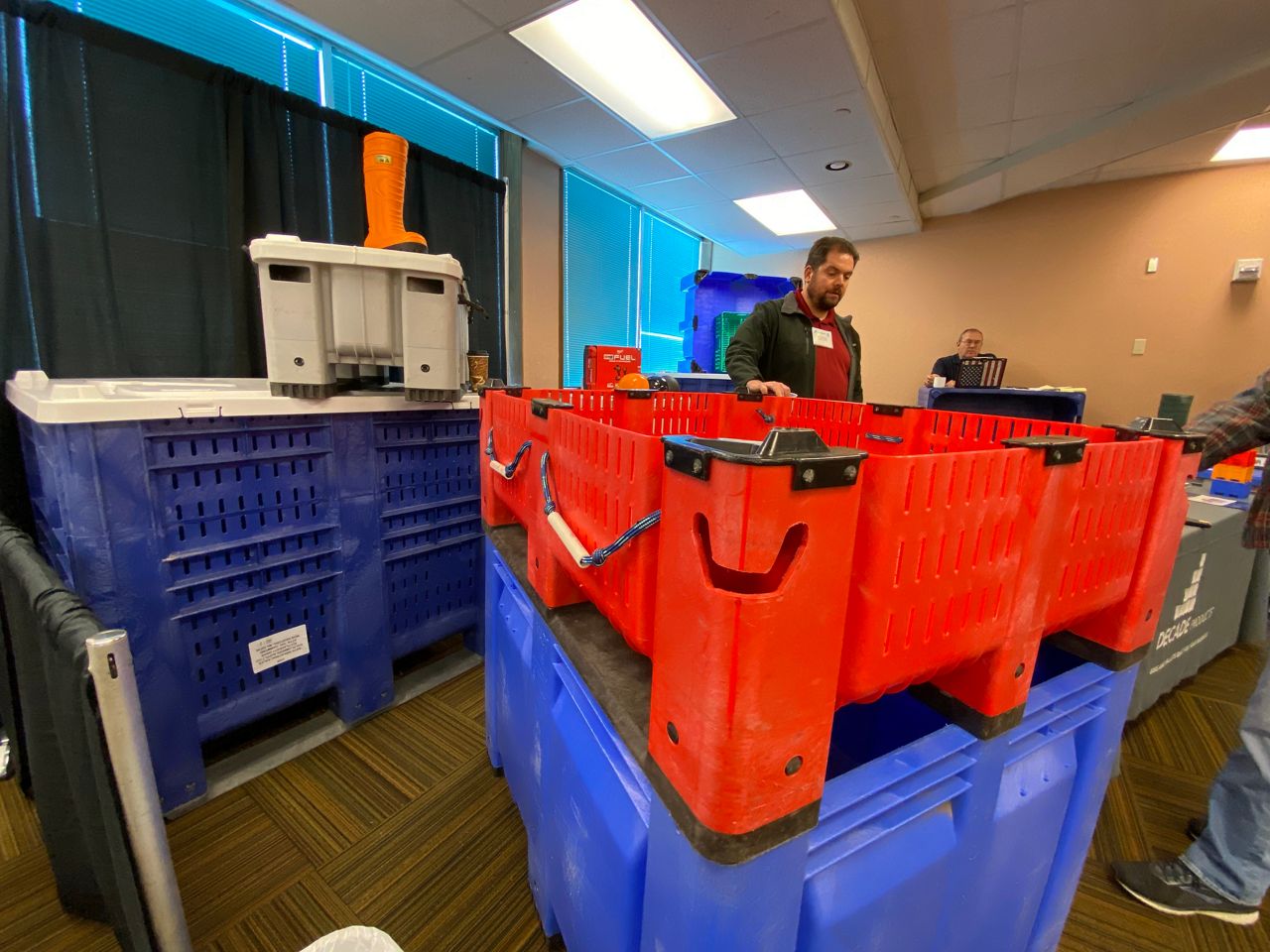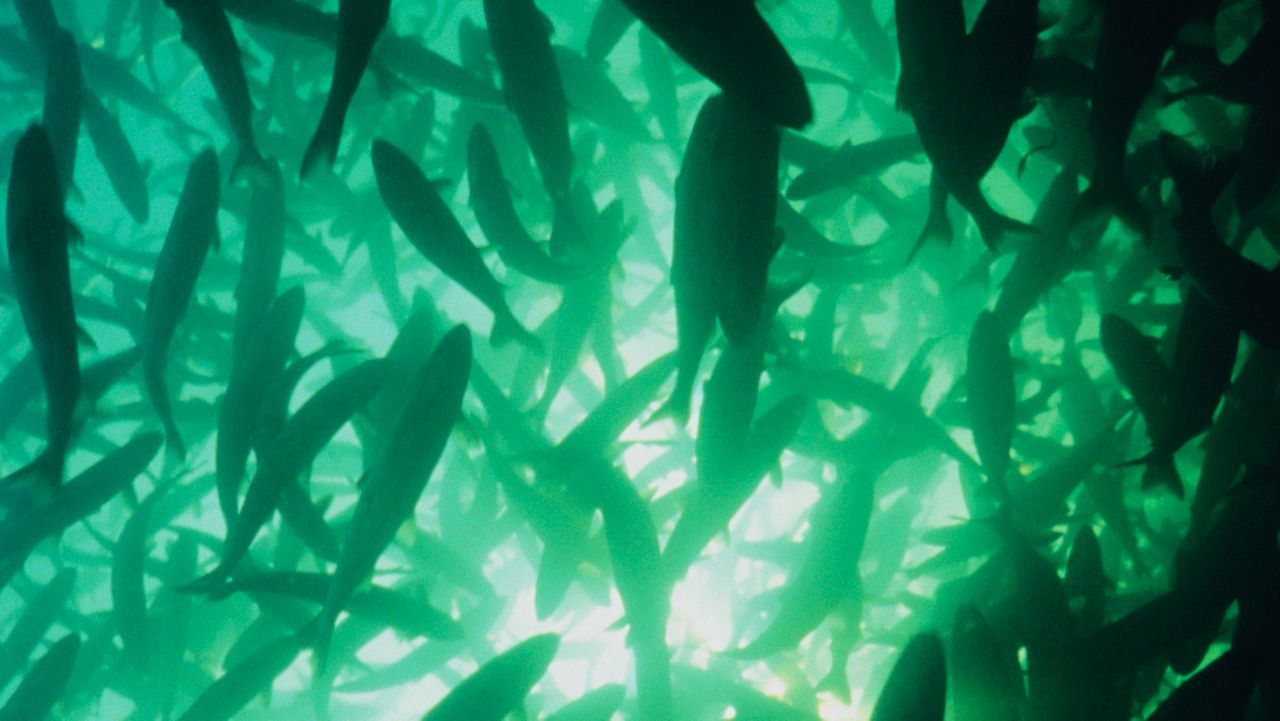Aquaculture industry experts from nine states are gathering in Portland this week to talk about the opportunities and challenges facing their industry, from finding workers to recovering from the COVID-19 pandemic.
From Virginia to Maine, hundreds came to the Holiday Inn by the Bay on Thursday for the Northeast Aquaculture Conference and Exposition and 41st Milford Aquaculture Seminar.
Maine Aquaculture Association President Sebastian Belle, who recently took over as president of the National Aquaculture Association, said small scale growers are expanding in Maine. Overall, the industry is growing about 2% a year, which he said is far slower than global growth of 6-8%.
“We are still way behind where we should be from a growth sector point of view,” he said.

Belle said the industry in Maine is also battling efforts to kill projects at the local level, leaving it to them to fight town by town for approvals.
“The big thing we are facing now in Maine is the gentrification of the coastline,” Belle said. “We are having to go town to town and tell our story.”
Nationally, Michael Rubino, senior advisor for seafood strategy with the National Oceanic and Atmospheric Administration, said the first year of the pandemic “really turned everything upside down.”
“Interesting though, seafood sales in the United States in 2020 were actually up 7%,” he said. “Everyone couldn’t go to restaurants, they had to go to supermarkets and cook at home. But what do they buy? Mostly imported shrimp, salmon, tilapia and tuna.”
In the U.S., 96% of salmon is imported, a statistic often cited by industrial scale fish farms looking to locate on the East and West coasts.
During a breakout session on land-based aquaculture, representatives from Nordic Aquafarms and Kingfish Maine talked about their experience with the state permitting process. Both said their European operations — Nordic in Norway and Kingfish in the Netherlands — had a much shorter and more streamlined process for getting approvals.
Nordic has received its state and federal approvals to build a land-based salmon farm in Belfast and Kingfish is awaiting approvals from the Army Corps of Engineers and the town of Jonesport before moving ahead with their land-based kingfish farm.

Last week, the state announced it would stop reviewing an application from American Aquafarms to build a closed net pen system for salmon in Frenchman Bay. In essence, the state’s decision means the company will have to start from scratch if it opts to submit a new round of applications.
A fourth project, a land-based salmon farm in Bucksport, is expected to break ground in the coming months.
Megan Sorby of Kingfish Maine said they will employ 70 people at their fish farm, a workforce that will grow to 100 when the fish are ready for processing. The project has met with some local resistance, but Sorby said she believes when the factory is up and running residents will realize that they are a good fit for the local lobstering and fishing communities.
“There’s a lot of synergy to be had with the existing businesses that are going on,” she said. “Lobstermen have to truck their product just like we would to get to a processor or just to market. Can we share that infrastructure? Can we share those trucking companies?”
When it comes to hiring workers, David Noyes of Nordic Aquafarms said they don’t necessarily look for specific degrees or educational background. Noyes said Nordic will train all workers onsite, but there are a few qualifications they look for.
In addition to its American site in Belfast, the company is applying for permits in Humboldt County, California, for a similar fish growing operation.
“The areas we are building our farms are very similar in that you have a lot of blue-collar, hard-working people with skills that directly translate to the facility,” he said. “Basically, we are looking for intelligent, observant, hard-working, reliable people.”
Another major player in Maine, Cooke Aquaculture, which raises net pen salmon in several Downeast locations, is looking for workers who are versatile, said Greg Lambert, freshwater production manager for Cooke.
“I want someone who’s not afraid to glue a pipe, use a Skil saw, get in a tank, get a little bit wet, get a little bit dirty,” he said.



